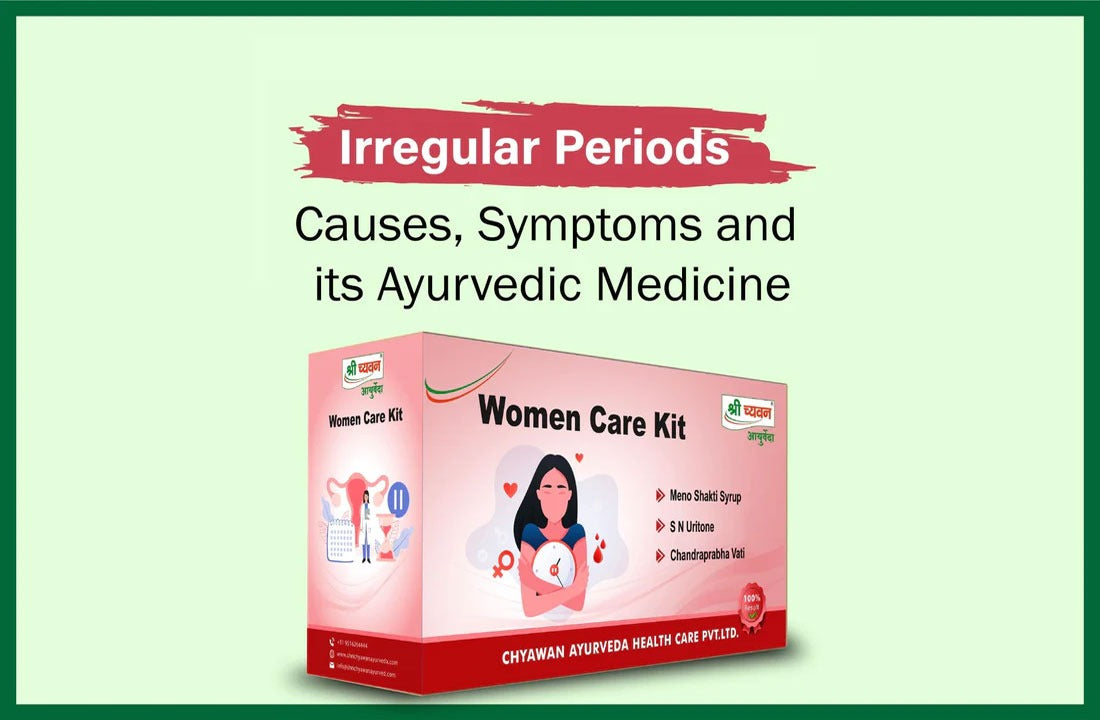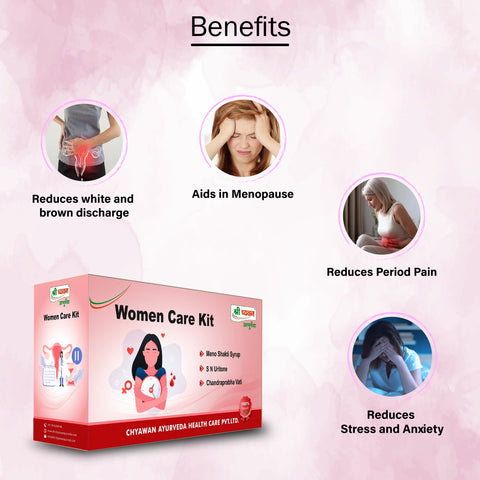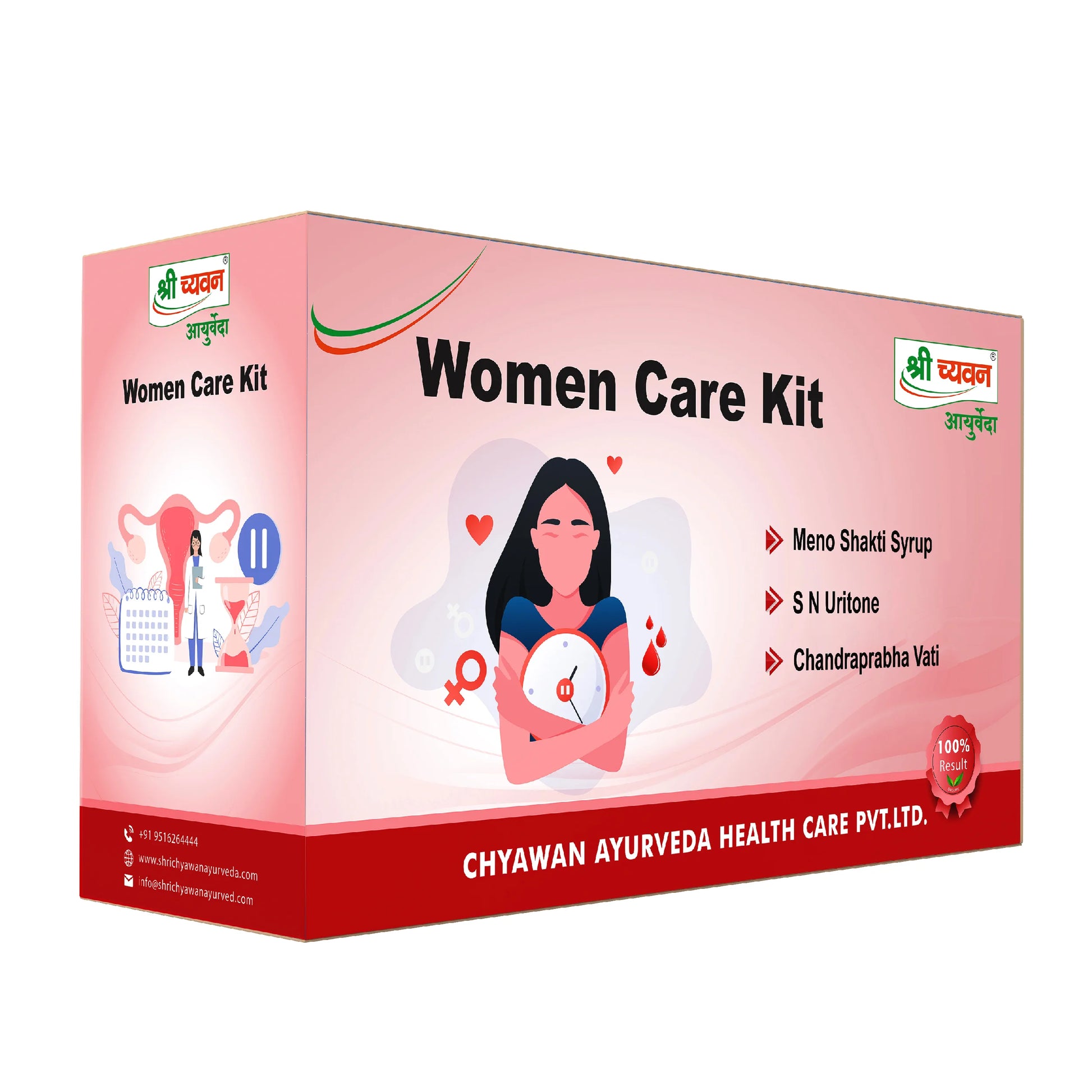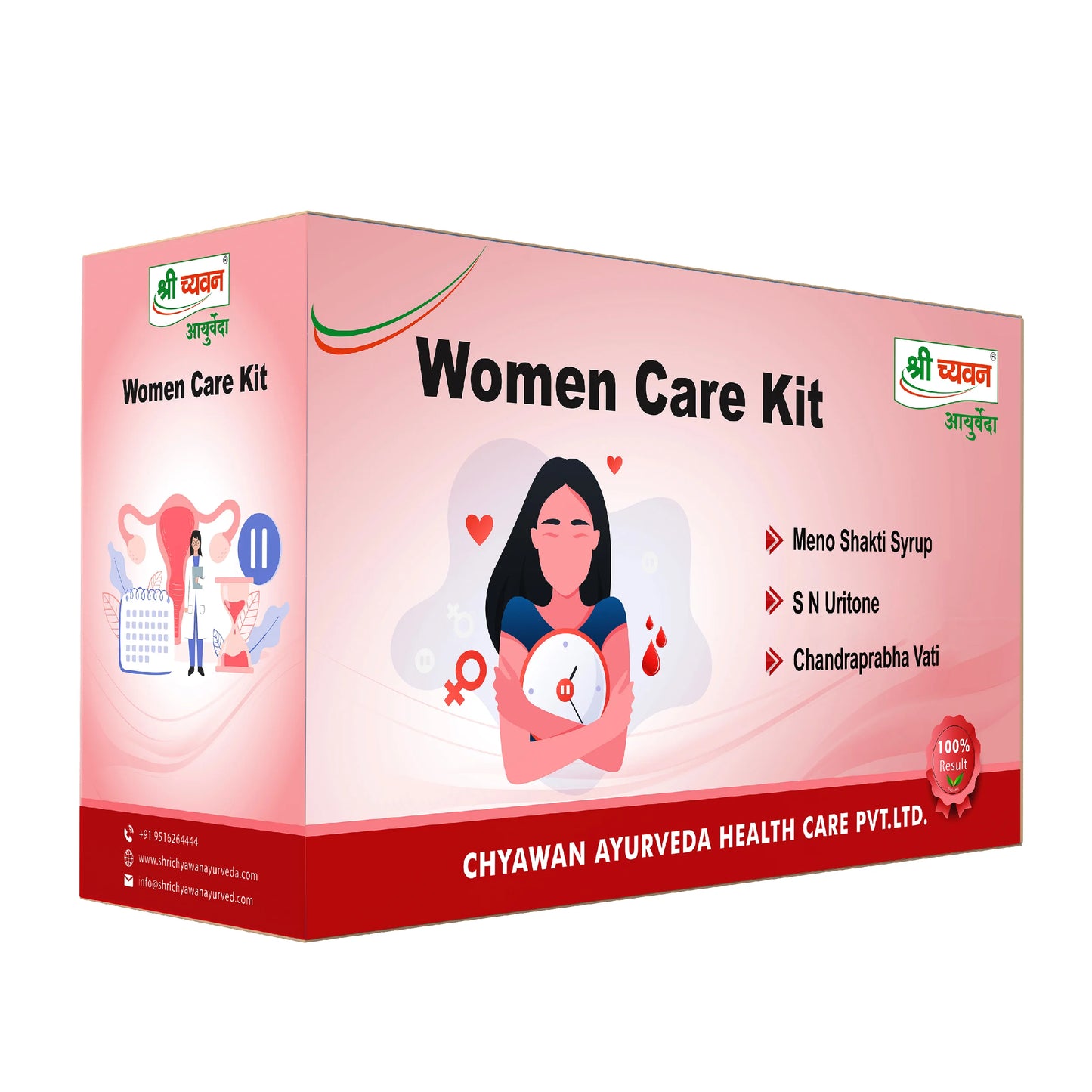An irregular menstrual cycle refers to deviations from the typical pattern of a woman's monthly periods. It can involve variations in cycle length, unpredictable timing, changes in flow (heavier or lighter), missed periods, frequent periods, or increased menstrual pain. Various factors, including hormonal imbalances, stress, weight changes, medications, and medical conditions, can contribute to irregular periods. Consulting a healthcare provider is advisable if you experience irregular periods to identify the underlying cause and explore treatment options. Tracking your menstrual cycle can help detect patterns and triggers for irregularities.
Irregular periods, also known as irregular menstrual cycles or irregular menstruation, refer to variations in the typical pattern of a woman's menstrual cycle. A regular menstrual cycle typically occurs every 21 to 35 days and lasts for about 2 to 7 days, with some variation among individuals. Irregular periods deviate from this expected pattern in terms of timing, duration, or flow.
Here are some common characteristics of irregular periods:
-
Varying Cycle Length: Irregular periods can involve cycles that are consistently shorter or longer than the typical 21 to 35 days.
-
Unpredictable Timing: Instead of having a fairly predictable schedule, where menstruation occurs around the same time each month, irregular periods may occur sporadically or unpredictably.
-
Heavy or Light Flow: The flow during irregular periods can vary significantly. Some women may experience heavy bleeding (menorrhagia), while others may have very light periods (oligomenorrhea).
-
Missed Periods: Irregular periods can also involve missed periods (amenorrhea), where menstruation skips one or more months.
-
Frequent Periods: In some cases, women may experience periods more frequently than the typical monthly cycle (polymenorrhea).
- Pain or Discomfort: Irregular periods can sometimes be accompanied by increased pain or discomfort during menstruation, which is known as dysmenorrhea.
What are the causes/reasons for irregular menstrual cycle?
Irregular menstrual cycles can have a variety of causes, ranging from natural fluctuations in hormones to underlying medical conditions. Here are some common causes of irregular periods:
- Hormonal Imbalances:
-
Polycystic Ovary Syndrome (PCOS): PCOS is a common condition where the ovaries produce an excess of androgens (male hormones), leading to irregular periods, ovarian cysts, and other symptoms.
-
Thyroid Disorders: Both an underactive thyroid (hypothyroidism) and an overactive thyroid (hyperthyroidism) can disrupt the menstrual cycle.
-
Stress: High levels of stress can affect the hypothalamus, a part of the brain that regulates hormones, leading to irregular periods.
- Weight Changes:
- Significant Weight Loss: Rapid weight loss, extreme dieting, or anorexia can disrupt hormonal balance and lead to irregular menstruation.
-
Obesity: Being overweight can also affect hormones and lead to irregular periods.
- Medications and Birth Control:
- Some medications, such as certain antidepressants and antipsychotics, can affect the menstrual cycle.
- Changes in birth control methods or missed contraceptive pills can lead to irregular bleeding.
- Medical Conditions:
- Uterine Fibroids: These noncancerous growths in the uterus can cause heavy or prolonged menstrual bleeding.
- Endometriosis: The tissue lining the uterus grows outside of it, causing pain and irregular periods.
-
Pelvic Inflammatory Disease (PID): An infection in the reproductive organs can lead to irregular periods.
- Perimenopause:
- As women approach menopause, typically in their 40s or 50s, hormonal fluctuations can cause irregular periods before they cease altogether.
-
Excessive Exercise: Intense physical activity, particularly in athletes, can lead to irregular periods due to changes in hormone levels.
-
Breastfeeding: While breastfeeding, some women may experience irregular periods or even amenorrhea (absence of periods) due to hormonal changes associated with lactation.
-
Contraceptive Use: Coming off hormonal contraceptives like birth control pills or the contraceptive shot can temporarily affect the regularity of periods.
-
Ovulatory Disorders: Problems with ovulation, such as anovulation (lack of ovulation), can result in irregular cycles.
- Intrauterine Device (IUD): In some cases, the use of an IUD, particularly the copper IUD, can lead to heavier and more irregular periods.
What are the symptoms of Irregular Menstrual Cycle?
Irregular menstrual cycles can manifest with various symptoms, and these symptoms may vary depending on the underlying cause of the irregularity. Here are some common symptoms associated with irregular periods:
-
Variation in Cycle Length: Irregular periods often involve cycles that are consistently shorter or longer than the typical 21 to 35 days.
-
Unpredictable Timing: Instead of having a fairly predictable schedule, where menstruation occurs around the same time each month, irregular periods may occur sporadically or unpredictably.
-
Missed Periods: Irregular periods can involve skipped periods (amenorrhea), where menstruation does not occur for one or more months.
-
Frequent Periods: In some cases, women with irregular cycles may experience periods more frequently than the typical monthly cycle (polymenorrhea).
- Changes in Flow: Irregular periods can result in changes in menstrual flow, including:
- Heavy Bleeding (Menorrhagia): Some women may experience very heavy menstrual bleeding.
-
Light Bleeding (Oligomenorrhea): Irregular periods can also involve very light or scant bleeding.
-
Pain or Discomfort: Increased pain or discomfort during menstruation, known as dysmenorrhea, can accompany irregular periods.
-
Mood Swings and Emotional Changes: Hormonal fluctuations associated with irregular periods can lead to mood swings, irritability, or emotional changes.
- Other Symptoms: Depending on the underlying cause, women with irregular periods may also experience symptoms related to the specific condition, such as:
- Acne and Skin Changes: Hormonal imbalances like PCOS can lead to skin changes like acne.
- Excessive Hair Growth: Conditions like PCOS may cause hirsutism, which is excessive hair growth in typically male-pattern areas.
- Pelvic Pain: Conditions like endometriosis can result in pelvic pain, especially during menstruation.
How can you treat irregular menstrual cycle with Ayurveda?
Shri Chyawan Ayurveda formulated an effective ayurvedic medicine for irregular periods - Women Care Kit. It is made up of a combination of natural and ayurvedic products which makes it trustworthy and safe for use. It is also beneficial for Menopause, period pain, and white discharge with proven results.
The Women Care Kit contains -
1. Chandraprabha Vati: Shri Chaywan Ayurveda's Chandraprabha Vati helps to reduce the level of uric acid, keeping vaginal infections away. It is a must have ayurvedic medicine for period pain.
Ingredients: It consists Swarn Bhasm, Vai Vidang, Chitrak Bark, Daruharidra, Devdaru, Camphor, Pipalmool, Nagarmotha, Pippal, Kali Mirch, Yavkshar, Vach, Dhania, Chavya, Gajpipal, Sounth, Sendha Namak, Nishoth, Dantimool, Tejpatra, Chhoti elaichi.
How To Use: Consume 1 tablet at night before going to bed.
2. S.N. Uritone Capsule: Provides relief from period pain, irregular periods, white or brown discharge, and back and pelvic pain. It is the most ideal ayurvedic medicine for irregular periods.
Ingredients: It consists of ingredients like Pashan Bhed, Esogen, Kumkum, Ativish, Logrh, Loh Bhasm, Madhuyasti, Tramr Bhasm, Vang Bhasm, Pipli, Chav, Vach, Hapusha, Dev Daru, Aela, Rakt Chandan, Chitramul.
How to use: Twice a day after meals i.e. post lunch and dinner.
3. Menoshakti Syrup: Helps in irregular periods and hormonal imbalance. It helps to maintain estrogen levels, considerably reduces stress and anxiety, and reduces hot flashes and night sweats. It is an ideal and recommended ayurvedic syrup for irregular periods.
Ingredients: It consists of Gooler fruit, Ashoka Bark, Methi, Nag Keshar, Nagar Motha, Punarnava, Clove, Jaiphal, Trikuta, Triphala, Nagarvel, Mulethi.
How to use: Consume 4 tablespoons twice a day after meals i.e., post lunch and dinner.
Benefits of using Women Care Kit: Following are the benefits of using Shri Chyawan Ayurveda’s Women Care Kit:
- Hormonal Balance: Ayurvedic herbs and formulations included in women's care kits may help regulate hormonal imbalances, which can be particularly beneficial for conditions like polycystic ovary syndrome (PCOS) or irregular menstrual cycles.
- Menstrual Health: These products can provide relief from menstrual discomfort, such as menstrual pain (dysmenorrhea), heavy bleeding (menorrhagia), or irregular periods. They may also help improve overall menstrual regularity.
- Reproductive Health: Ayurvedic women's care kits may support the female reproductive system, promoting fertility and addressing issues like infertility.
- Stress Reduction: Many Ayurvedic formulations include herbs and practices aimed at reducing stress and anxiety, which can be helpful for overall well-being and managing conditions related to stress.
- Digestive Health: Ayurveda places a strong emphasis on digestion, and these kits may contain ingredients that support healthy digestion and nutrient absorption.
- Detoxification: Some Ayurvedic remedies may help with detoxifying the body and removing accumulated toxins, which can have a positive impact on overall health.
- Skin and Hair Health: Ayurvedic women's care kits may include ingredients known for promoting healthy skin and hair, addressing issues like acne, dry skin, or hair loss.
- Balanced Energy: Ayurveda considers the balance of energy (Prana) vital for overall health. These kits may include practices and formulations to enhance energy levels and vitality.
- Holistic Wellness: Ayurveda takes a holistic approach to health, considering the mind, body, and spirit as interconnected. Women's care kits may include lifestyle recommendations, meditation, and yoga practices to promote holistic well-being.
- Natural and Holistic Approach: Ayurvedic products often rely on natural ingredients and holistic principles, which many people prefer as an alternative or complementary approach to conventional medicine.








